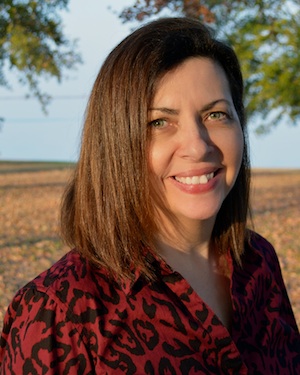Ariel Francisco’s Poetry as Documentation

Ariel Francisco’s new poetry collection, Under Capitalism If Your Head Aches They Just Yank Off Your Head, Francisco focuses on the familial, on how he and his family navigate a world in which governments require documentation just to prove that they were born in a real place on a certain day, to prove that they are “real” people—documentation that governments are so rarely willing to provide to people and families like his. Francisco writes about the governments that claim but don’t want him and his family, about his family’s own lost history, and about the American Dream that they’ve been lied to about. In one poem, Francisco writes that they are all “indebted to the wreckage” of the prior generations, of one’s mothers and fathers, of one’s ancestors, of what was done to them.
Governments may want people to provide documentation proving that they are, in fact, people, but poets provide documentation for the people. Under Capitalism If Your Head Aches They Just Yank Off Your Head can be read as a memoir in verse at times—not just Francisco’s memoir, but the memoir of his family, and of Latinx and migrant families in general. The book demonstrates how families struggle to reclaim their own narratives, while fighting to acquire the documentation needed to be a citizen, or to have the correct birthdate or birthplace, or just to be remembered as a poet. Francisco, who also translates his father’s poetry from Spanish to English, writes poetry documenting these histories and stories, not for the governments of the countries he has roots in, but for his own family, his own people.
We see what amounts to the origin story of his family’s paper trail early in the book, in poems dedicated to the birth certificates (and the errors within them) of the speaker and his dad. In the poem titled “According to my Birth Certificate, My Mom is From ‘Guatemala, CA.’” We see how a clerical error turns his mother’s home from Central America to California, how the United States refuses to see beyond its borders, how so many of the United States’s institutions have an easier time inventing a place in California than seeing a real place outside of the country, where many US residents have come from. Francisco writes of “a dream- / land within the American dream, magical, / borderless, violenceless, cageless, where / there’s no reason to leave, nothing to flee,” indicating that if his family’s place of origin isn’t real, if their old home isn’t real, then neither is the danger they fled—as if they’d given up their home for nothing.
In this poem we also see how the speaker’s father’s birth certificate has errors that reveal a different level of aggression: the birth date itself—the whole point of the birth certificate—is wrong. With his father’s parents dead, and with photos so easily doctored these days, Francisco writes how “only the scowl on his face when / it’s brought up can serve as testament / to those fifty-four unaccounted days.” We see the struggle and pain this discrepancy brings, the pain of having one’s own existence denied because “one must pay” and he and his family couldn’t. He was born into so much debt, his own birth was withheld.
We later see Francisco tackle the American Dream head on, in “American Dream, Refurbished,” a poem that sees Francisco portray each of his parents’ views of the American Dream, followed by his own personal outlook on it. We see how the speaker’s dad wants to retire early, thinking that whatever the United States’s government would give him after retirement would be more than enough to live off of in Santo Domingo. The speaker’s mother talks about how she wants to wait for her full retirement so that when she retires, she can stop working. Both see the American Dream as culminating in no longer having to work, returning to the homes they had to leave when they were younger. Of course, the speaker gets the last word, saying that when his parents ask about his retirement plans, the only reason he doesn’t laugh is because he loves them. In this poem, we see how the American Dream doesn’t include “America” itself, or, at least, the country that believes it is all of America. We also see how the American Dream, how capitalism, how the labels put on Latinx peoples and first generation “Americans” result in inheritances we often don’t want. Inheritances not like what we see in movies and books and the propaganda’d American Dream, but inheritances like debt and trauma and “Despite all evidence to the contrary / I do not like dwelling on the past, / especially one inherited so heavily / and without consent.”
“Twenty years after arrival, / the burden of betraying / his homeland finally gone, / or at least dulled down, / to a manageable pain, tucked deep,” reads the opening of “My Dad Applied for Citizenship and is Accused of Being a Communist, 1997.” Here we see how important identity was for the speaker’s father, who only now feels comfortable applying for citizenship, who finally feels ready to ask for the documentation confirming what he has essentially been for the last twenty years, a US citizen. Despite the years and the personal anguish that have come before his ability to make this decision, we see that that is not enough, however, for the country—that enough pain and thought and time has not, in actuality, been paid in exchange for citizenship. The poem continues with the United States wanting and needing more. Francisco ends the poem documenting his father’s responses to the US’s requests: “I’ve received / such a great education in this country. / He says I’ve learned so much about the US you wouldn’t believe.” Francisco makes clear, here, how so much of his father’s and other migrants’ experiences go untold, how they literally go undocumented, how so much pain and trauma is inherited and passed down, and how it doesn’t make the news, doesn’t change policy, doesn’t seep into the American Dream that lulls so many of the unaffected people in this country to sleep every night.
Where the government continues to fail to provide, however, the poet continues to give. “On Learning My Grandmother Was Also a Poet” opens: “My dad says it slowly / as though the memory / is arriving word by word.” Francisco emphasizes the importance of the memory, echoing the same affectation the father had in recounting the story to the speaker, for the speaker to write this poem for the reader. In a country, in a world, that requires paperwork from governments in order for people to be considered “official” or “real” (at least by those governments themselves), Francisco committing to paper this poem about his grandmother, the poet, is him using his ability as a writer, as a poet, to make her passion, her power as a poet, official—if not to the government then to the people who read Francisco’s poems.
Francisco carries on, talking about how his grandmother would take his father to this spot when she’d read her poems on the radio. Francisco writes of his father: “He says this / as though it’s being revealed to him. / As though he’s learning this for the first time. As though / he could have forgotten.” And we realize the importance of his father stating this to the speaker, for they are no longer in the country where they are from, and the speaker hasn’t been in contact with the poetry to understand this part of his grandmother—the father doesn’t have the poems, as they were “lost” after his grandmother died and he left the country. It is important for the speaker to understand these stories, to pick up this inheritance, because there is no documentation besides these stories. Francisco ends his poem with these poignant lines: “I want to tell him / that radio waves never disappear, / never truly dissipate, not really. / I want to tell him that they grow / infinitely smaller, infinitely more / infinitely more spread out, infinitely infinite, / but still there. Forever. / I want to tell him I am listening.” Even though the poems are lost, the documentation of his grandmother’s passion, and her power as a poet, has been lost, the documentation doesn’t make the person, doesn’t make a truth. She is a poet because she was a poet. Because the father remembers, and now the speaker knows, and there is nothing more than that.
Francisco writes poems that interweave the histories of his family, Latin America, and the United States of America. But he also writes poems that counter the documentation that is lost—the documentation that the government requires to feel satisfied, the documentation required for the American Dream. For while many people of Latin American descent, the kin of migrants and refugees and exiles inherit the debts that come from the lack of these documents, and the debts that come from the lack of interrogating the American Dream that has been sold to so many people. But these poems give a new document, a new reading, to those that don’t have the “proper” documentation. The poem is never truly off of the radio waves, and the poet is never truly forgotten, as long as their people keep reading, listening, and remembering. There may not be documentation stating where the speaker’s mother was born, or the actual date of his father’s birth, and there may not be poems written down by the grandmother available for us to read, but Francisco’s work, his own poetry, acts as a documentation of these truths, these realities. And that is the poet’s job: to document the moments that would otherwise be lost. To document moments for the people.


